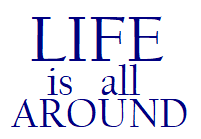A well-known book in entrepreneurship, named Start with Why, makes the point that the success of a new business lies in why this venture came alive in the first place. In other words, the purpose or cause of a new business is vital to its future success.
Why-questions as a starting point for growth
Addressing the WHY question is not only crucial for a new entrepreneur. It can also prove a vital stimulus and inspiration to grow in life. Some questions cannot categorically be answered by today’s science. For example, take those that have to do with the purpose of humankind, space, or just about creation itself. Think of “Why does anything exist?”, “Why am I here this very moment” “Why did we get born, and why did we die?”.
On the one hand, we do not know the truth. Many have written theories, others believe their own things, but the fact is that we do not know. At the same time, many have not actually asked the questions in the first place, so they never realized that there are no answers available.
You may say that you have come across many sources that claim they know the truth. Sure, there are organizations, religions, and cultures that each propagate their own worldview. No matter what somebody says, the fact is that we, as individuals, do not know the answers to many critical questions. “Why creation?” “What is the purpose of humans?” “Why do we die?” “Is there life after death?” are only a few of such unanswered questions.
Find the best “hat” in your life
There will come a time for everyone to ask these inevitable life questions. Unfortunately, many think of those only when an illness, a terrible accident, or old age comes to them. Otherwise, they are simply too busy to focus on these “silly” questions now. Their attitude is like: “How can this question enhance my life now? I do not care about it. I just want more XXXX”, whatever the XXXX may be.
If I could argue with those people and if they would be willing to listen, I would try to reason in the following way: It is better to know something sooner rather than later. I will give an example to illustrate my point.
Think that you have to walk 10 kilometers in a desert. And you say, “what is 10 kilometers? I can even run the whole thing; very easy”. So you start walking, and by the 4th kilometer, your water is running out, and because you thought this was a straightforward task, you did not know or bother to take a hat with you, and now the sun starts to get heavy. By the 8th kilometer, you use your T-shirt or everything you can find as a make-up hat.
By the time you complete the 10th kilometer, your head is hurting and not feeling well. You clearly know that you need to take a hat with you because the d@mn sun is too hot in the desert. Now, what if you had spent some time before you started walking to think what you would need most when there? The decision to take a hat with you would come naturally.
The same is true with life on a much bigger scale. If you know that a “hat” can make such a difference in your life, you will get the best “hat” at the beginning of your life, not the end of it. Spending a few moments, days, or months to figure out what “hat” would make your life better sounds like a reasonable investment. And asking questions, especially the WHY questions, can be a starting point for this process.
Knowing or pretending
We may believe something, or also, we may pretend to know the truth. Unless what you think you know has come from experience and enhanced perception, then you are closer to belief rather than knowing. Do not take me wrong; belief can be a tremendous tool for growth and transformation. There are infinite ways you can grow. As I keep saying, you can use anything for your growth, especially belief.
It is just that believing something is true does not actually make it true. Something is true, or it is not. Whether you believe or disbelieve it, the fundamental quality doesn’t change. It remains true, or it remains untrue. The question is: “Do you want to know? Or do you want to pretend to know?”.
Even if what you believe happens to be accurate by chance or for any reason, you are not necessarily closer to the truth. Mentally, you may understand what this truth is about. But you do not know it; you simply read or heard about it and made your conclusion. Because this does not come from experience, you do not know it, you can believe it, or you can pretend to know it.
If you pretend to know, then you are confident. Confidence on its own is an asset and valuable trait in a person. But it can become dangerous if it is accompanied by a lack of clarity. Think of the hat example above or the many crimes committed against humanity, yet in the name of society, simply because those in power had confidence that what they were doing was right. They were confident, but they lacked clarity.
On the other hand, if you know, then you naturally have both clarity and confidence. This is because you know the truth about the subject, any subject if that matters, from life itself to different business fields, finance, medicine, gymnastics, anything. Because you know everything about the issue, you have the necessary clarity, and you are thus naturally confident in your actions.
Coming to terms with ignorance
Of course, the possibility of us knowing the truth is not something that can usually happen within a few moments, days, or even years. We need to be realistic. The choice is not only between knowing and pretending to know. We can aim towards the former, but what about now?
If you do not know but want to know, what can you do now to help reach your goal? Admitting that you do not know seems like a natural next step. Only when you are aware that you do not know does the possibility of knowing become a reality. On the other hand, if you pretend to know, you are bound to be enslaved in your own conclusions and prejudices.
To summarize everything, you start with asking the Why and other life questions, then search for the answers. I may have said that we do not know the truth, but I also always say not to believe me. Search for yourself. Decide whether you want confidence without clarity or you want both clarity and confidence. Respectively, you choose to believe and make your conclusions or admit your ignorance.
Once you see that you do not know, everything is possible. You naturally pay 100% attention to everything because you simply do not know, and you are curious, striving to know. A beautiful journey of discovery can be ahead. If you base this journey and your knowledge upon experience and perception rather than readings and conclusions, then that is insurance that can steadily bring you closer to the truth.
Take away:
- Why- and life- questions can be an inspiration for growth
- Decide if you want to know or you are okay with pretending to know
- Admit your ignorance, see that you do not know; then everything can happen



